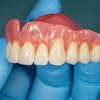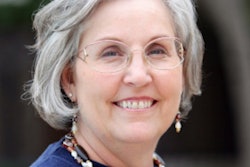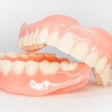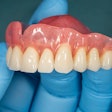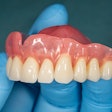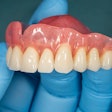
The number of dental visits decline as people age and dramatically drop after age 80, according to a new study. The researchers worry that the lack of preventive dental care could lead to tooth decay and loss for these patients.
Oral health is critical for maintaining good general health and quality of life, but the study findings demonstrate older adults may struggle to see the dentist. The researchers published their analysis on age and dental visits in the journal Research on Aging (July 4, 2019).
"To promote oral health and close racial and ethnic gaps in oral health disparities, seeing a dentist regularly is critical," stated lead author Wei Zhang, PhD, from the University of Hawaii at Manoa, in a press release. "Failure to engage in preventive dental care may lead to serious consequences, such as tooth decay, pain, tooth loss, and inflammation."
For their analysis, the researchers used longitudinal data from the Health and Retirement Study, a survey of U.S. adults age 50 and older conducted every two years. The team used findings from 2006 to 2014 surveys, which included health and socioeconomic data from 20,488 adults.
The average respondent saw the dentist 3.7 times between 2006 and 2014. About half of the respondents had four or five dental visits in eight survey years, and 19% had one or two. The data suggest the last cohort studied, baby boomers born from 1954 to 1959, are on track to have fewer dental visits than older respondents.
Dental visits also varied significantly by age and race/ethnicity. Dental visits declined significantly as participants got older, and the number of visits declined substantialy after participants turned 80. This trend was more dramatic for black, Hispanic, and other racial/ethnic minorities than for white respondents, a finding that concerned senior author Bei Wu, PhD, from New York University.
"Our study went beyond prior research by confirming that racial and ethnic disparities were substantial and persistent as people became older, regardless of their birthplace and while adjusting for a wide range of factors," Wu stated. "This finding is alarming as it indicates that some unmeasured factors beyond the scope of this study, such as oral health literacy, perception of need, barriers to access, and dissatisfaction with dental care, could play important roles in explaining the disparities in dental care as people age."

